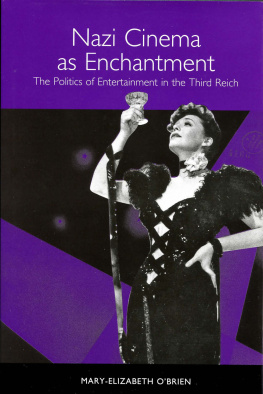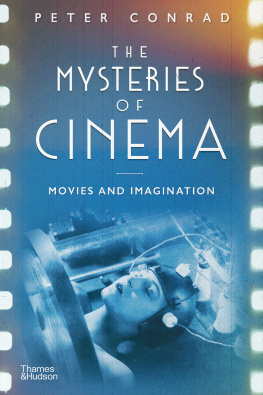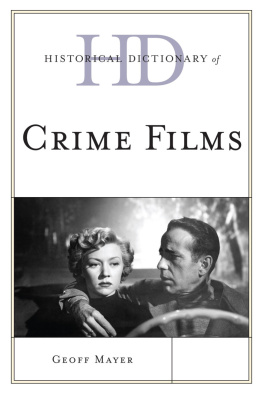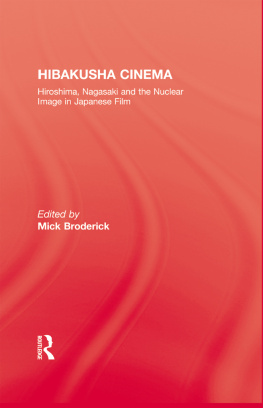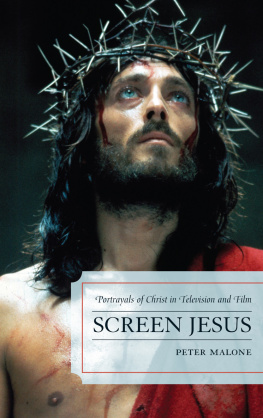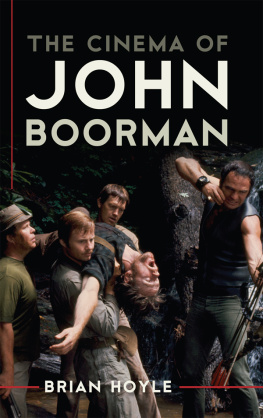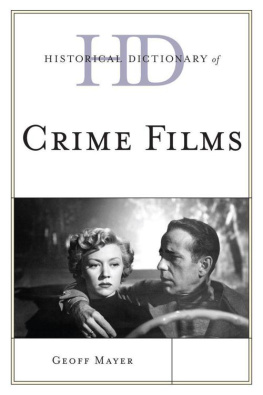APOCALYPSE - CINEMA
PETER SZENDY
2012 AND OTHER ENDS OF THE WORLD
APOCALYPSE - CINEMA
Translated by Will Bishop

Copyright 2015 Fordham University Press
All rights reserved. No part of this publication may be reproduced, stored in a retrieval system, or transmitted in any form or by any meanselectronic, mechanical, photocopy, recording, or any otherexcept for brief quotations in printed reviews, without the prior permission of the publisher.
This book was originally published in French as Peter Szendy, Lapocalypse-cinma: 2012 et autres fin du monde Capricci, 2012.
This work, published as part of a program providing publication assistance, received financial support from the French Ministry of Foreign Affairs, the Cultural Services of the French Embassy in the United States, and FACE (French American Cultural Exchange). French Voices logo designed by Serge Bloch.
Fordham University Press has no responsibility for the persistence or accuracy of URLs for external or third-party Internet websites referred to in this publication and does not guarantee that any content on such websites is, or will remain, accurate or appropriate.
Fordham University Press also publishes its books in a variety of electronic formats. Some content that appears in print may not be available in electronic books.
Visit us online at www.fordhampress.com.
Library of Congress Cataloging-in-Publication Data
Szendy, Peter.
[Apocalypse-cinma. English]
Apocalypse-cinema : 2012 and other ends of the world / Peter Szendy ; translated by Will Bishop. First edition.
pagescm
This book was originally published in French as Peter Szendy,
Lapocalypse-cinma: 2012 et autres fin du Title page verso
Includes bibliographical references and index.
ISBN 978-0-8232-6480-3 (cloth : alk. paper) ISBN 978-0-8232-6481-0 (pbk. : alk. paper)
1. Science fiction filmsHistory and criticism.2. Apocalypse in motion pictures.I. Title.
PN1995.9.S26S94132015
791.43615dc23
2014030503
FOR GIL ANIDJAR
Samuel Weber
And truly, I saw something, the likes of which I never saw.
Friedrich Nietzsche, Thus Spoke Zarathustra
What in daguerreotype must have felt inhuman, not to say deadly, was the (moreover prolonged) looking into the camera, since the apparatus [Apparat] records the human image without returning its gaze.
Walter Benjamin, On Some Motifs in Baudelaire
The apocalypse is in fashion. Ever since Hiroshima and Nagasaki, when it first became evident that human beings had acquired the power to destroy life on earth, and to destroy it in a spectacular and rapid manner, apocalyptic thoughts and images have increasingly proliferated and, at least in certain parts of the worlda world soon to be globalizedprogressively fascinated what was once called the popular imagination. No wonder, then, that the most popular medium of the postSecond World War periodcinemaand today its audiovisual successor should have become the vehicle for deploying visions of the end of all visibility and for providing material for imagining the unimaginable. In an essay that takes up this tendency and examines it critically, and which also informs much of Peter Szendys remarkable construction of an Apocalypse-Cinemanamely No ApocalypseNot Now!Jacques Derrida argues that there exists a secret, more or less implicit, affinity between literature and the nuclear referent of apocalyptic self-destruction, since, precisely by virtue of its totality, the latter can be represented only via a certain fictionality and thus retains a literary quality. In Apocalypse-Cinema Peter Szendy argues that a similar affinity exists between the apocalypse and cinemabetween anticipations, intimations, or representations of the end of the world and what could be called the finitude of the film as a structure delimited in timein short: between the end of the world and the end of the film. His emblem and experience of this apocalyptic end is the dark screen that separates the final image of Lars von Triers Melancholia from its creditsa blackness that lasts somewhat more than ten seconds, in which von Triers film is no longer really cinema any more but rather a cinema of the after-all.
Szendy thus reminds us of an aspect of the apocalypse that is often forgotten in its common usage. This usage generally reflects two moments. First, as Szendy writes, In Greek apocalypsis means revelation, unveiling, uncovering. Revealing, unveiling, uncoveringthese words indicate why a medium such as the cinema could stand in a privileged relation to the apocalypse. But the etymology of the Greek word also suggests something else: In order for something to be unveiled, uncovered, or revealed, it must in some sense or other have already been there all the time. It cannot simply be thought as the advent or announcement of something entirely neweven or especially if this newness involves the destruction of the existing world. Second, and no less important, is that the apocalyptic revelationat least as it comes down to us from what is probably its most important textual articulation in the Book of Revelation of St. John, the book that concludes the New Testamentis not simply an uncovering of what has been but a manifestation of what will be: of what is to come, after all, if we understand all here as applying to all previous life on earth. In short, the apocalypse involves a revelation both of the end of one world and the beginning of another.
In the account of St. John, the one is essentially related to the other. What is to come involves the retribution and reward of what has been: the damnation of the sinful and the saving of the faithful. The apocalypse, at least in its Christian originsand this still holds in different ways today, even in an apparently secular culture (which may or may not be specific to those parts of the world informed by biblical traditions)involves a violent, destructive but potentiallyselectivelyredemptive transition from one world to another, from one lifethat limited by guilt, sin, and its consequence: mortalityto another and possibly better one.
But in many of the films examined in this book, it is the end as such, the end itself, that tends to overshadow its aftereffects: This is the ambiguity of what Szendy, playing on a French idiom, calls the after-all (aprs-tout). If, after all, there is only the end, then how is this end to be imagined, represented, depicted? Does the apocalypse entail the end of everything, everyone, or is it just the end of some one, anyone: the one required to experience something like an end?
This is a question that Derrida, in the essay already mentioned, and which informs many of the arguments and interpretations elaborated in Apocalypse-Cinema, dares to address in what is perhaps one of the most provocative passages not just in this essay but in all of his writings:
If Derrida can state that heand with him, presumably any singular living beinghas no reason not to equate the anticipated catastrophe [that] takes place with each individual death with annihilation of humanity as a whole, it is because the death of that singular being takes with it a worldwhich for that being was also the world. It is the point of view of such a singular living being that then becomes a condition for thinking, experiencing, and depicting involved in Apocalypse-Cinema.
Each Time Unique, the End of the World is the English title of a collection of texts written by Derrida to commemorate the passing of friends and colleagues, and from which Peter Szendy quotes the following memorable passage:


